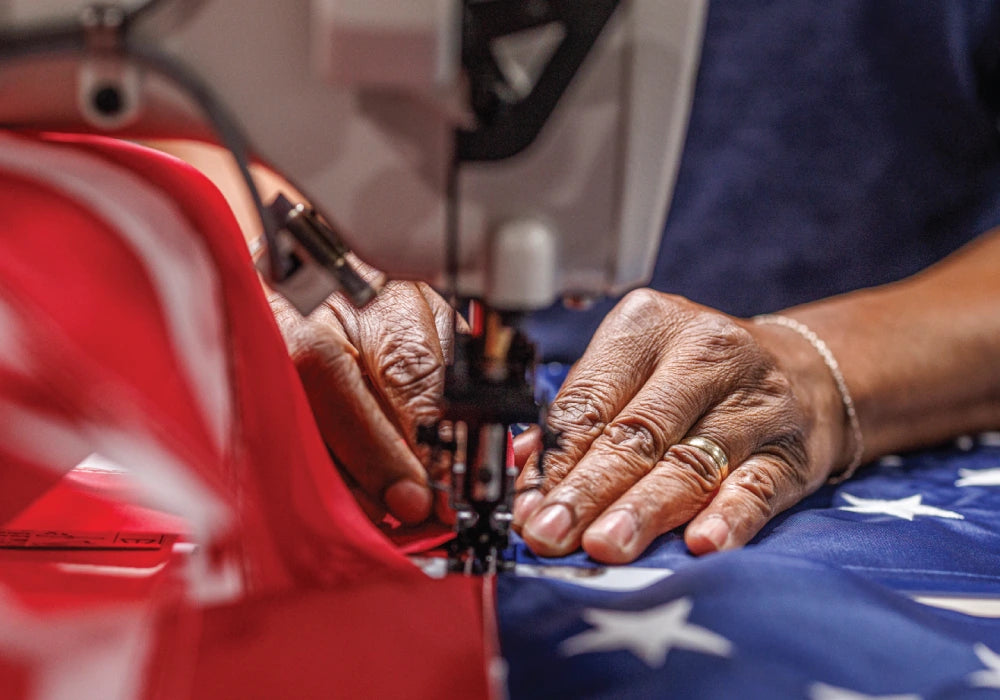February 18

1885
Mark Twain published his famous—and famously controversial—novel The Adventures of Huckleberry Finn. Twain first introduced Huck Finn as the best friend of Tom Sawyer, hero of his tremendously successful novel The Adventures of Tom Sawyer (1876). Though Twain saw Huck’s story as a kind of sequel to his earlier book, the new novel was far more serious, focusing on the institution of slavery and other aspects of life in the antebellum South. Aside from its controversial nature and its continuing popularity with young readers, The Adventures of Huckleberry Finn has been hailed by many serious literary critics as a masterpiece. No less a judge than Ernest Hemingway famously declared that the book marked the beginning of American literature: “There was nothing before. There has been nothing as good since.”

1930
Pluto, once believed to be the ninth planet, is discovered at the Lowell Observatory in Flagstaff, Arizona, by astronomer Clyde W. Tombaugh. Tombaugh discovered the tiny, distant planet by use of a new astronomic technique of photographic plates combined with a blink microscope. In August 2006, however, the International Astronomical Union announced that Pluto would no longer be considered a planet, due to new rules that said planets must “clear the neighborhood around its orbit.” Since Pluto’s oblong orbit overlaps that of Neptune, it was disqualified.


2006
Shani Davis became the first Black athlete to win an individual gold medal in Winter Olympics history, capturing the men's 1,000-meter speed-skating race. American Joey Cheek won the silver medal at the event at the Games in Turin, Italy. Four years later, at the Games in Vancouver, British Columbia, Davis repeated as Olympic champion in the 1,000-meter speed-skating. The Chicago native also earned a silver medal in the 1,500-meter speed-skating race at the Games in Turin and Vancouver.
February 19

1807
Aaron Burr, a former U.S. vice president, was arrested in Alabama on charges of plotting to annex Spanish territory in Louisiana and Mexico to be used toward the establishment of an independent republic. On September 1, 1807, he was acquitted on the grounds that, although he had conspired against the United States, he was not guilty of treason because he had not engaged in an “overt act,” a requirement of treason as specified by the U.S. Constitution. Nevertheless, public opinion condemned him as a traitor, and he spent several years in Europe before returning to New York and resuming his law practice.

1878
Thomas Edison was awarded U.S. Patent No. 200,521 for his invention, the phonograph. The technology that made the modern music business possible came into existence in the New Jersey laboratory where Thomas Edison created the first device to both record sound and play it back. Edison devised a system that transferred the vibrations of a diaphragm (i.e., sound) to an embossing point and then mechanically onto an impressionable medium, paraffin paper at first, and then a spinning, tin-foil wrapped cylinder as he refined his concept. Edison and his mechanic, John Kreusi, worked on the invention through the autumn of 1877 and quickly had a working model ready for demonstration.

1945
Operation Detachment, the U.S. Marines’ invasion of Iwo Jima, was launched. Iwo Jima was a barren Pacific Island guarded by Japanese artillery, but to American military minds, it was prime real estate on which to build airfields to launch bombing raids against Japan, only 660 miles away. The capture of Mount Suribachi, the highest point of the island and bastion of the Japanese defense, took four more days. The US landing forces suffered 6,821 killed and 19,217 wounded. Although most in the 20,000-strong Japanese garrison were draftees, they refused to surrender, fighting tenaciously until only a few hundred remained alive to be taken prisoner.
February 20

1792
President George Washington signed legislation renewing the United States Post Office as a cabinet department led by the postmaster general, guaranteeing inexpensive delivery of all newspapers, stipulating the right to privacy and granting Congress the ability to expand postal service to new areas of the nation.

1962
From Cape Canaveral, Florida, John Herschel Glenn Jr. was successfully launched into space aboard the Friendship 7 spacecraft and became the first American to orbit Earth. Glenn, a lieutenant colonel in the U.S. Marine Corps, was among the seven men chosen by the National Aeronautics and Space Administration (NASA) in 1959 to become America’s first astronauts. A decorated pilot, he flew nearly 150 combat missions during World War II and the Korean War. In 1957, he made the first nonstop supersonic flight across the United States, flying from Los Angeles to New York in three hours and 23 minutes.

1998
15-year-old Tara Lipinski won the gold medal in women’s figure skating at the Olympic Winter Games in Nagano, Japan, and became the youngest gold medalist in her sport. Lipinski donned her first pair of skates at age six. In 1994, at age 12, she won a gold medal at the U.S. Olympic Festival, a junior-level competition. In 1997, Lipinski, then 14, took first place at both the national and world figure skating championships, beating out her American rival and perennial fan favorite, Michelle Kwan. In Nagano, both Kwan and Lipinski turned in strong performances; however, Lipinski’s program was considered more technically difficult and she was awarded the gold medal. Lipinski, then 15, was the youngest person in figure skating history to capture Olympic gold.
February 21

1948
The National Association for Stock Car Racing—or NASCAR, as it became widely known—was officially incorporated. NASCAR racing is one of America’s most popular spectator sports, as well as a multi-billion-dollar industry. In 1950, the first NASCAR-based track, the Darlington Raceway in South Carolina, opened. More new raceways followed, including the Daytona International Speedway, which opened in 1959. The driving force behind the establishment of NASCAR was William “Bill” France Sr., a mechanic and auto-repair shop owner from Washington, D.C., who in the mid-1930s moved to Daytona Beach, Florida. After witnessing how racing rules could vary from event to event and how dishonest promoters could abscond with prize money, France felt there was a need for a governing body to sanction and promote racing.

1965
In New York City, Malcolm X, an African American nationalist and religious leader, was assassinated while addressing his Organization of Afro-American Unity at the Audubon Ballroom in Washington Heights. He was 39. Three members of the Nation of Islam—Mujahid Abdul Halim, Muhammad A. Aziz and Khalil Islam—were soon after charged with first-degree murder. Islam and Aziz maintained their innocence, and during the 1966 trial, Halim confessed to the crime and testified that Islam and Aziz were innocent. All three men were found guilty, however, and sentenced to 20 years to life in prison.


1981
The biggest hit of Dolly Parton’s career, the song "9 to 5" reached #1 on the pop charts. In 1980, Parton brought the full range of her talents to bear on a project that would cement her crossover from country music to mainstream superstardom. That project was the movie 9 to 5, for which Dolly wrote and performed the song that earned her both Oscar and Grammy nominations as well as semi-official status as a true pop icon.
February 22

1819
After years of negotiations, Secretary of State John Quincy Adams achieved a diplomatic coup when he and the Spanish minister Do Luis de Onis signed the Florida Purchase Treaty, which officially put Florida into U.S. hands at no cost beyond the U.S. assumption of some $5 million of claims by U.S. citizens against Spain. Formal U.S. occupation began in 1821, and General Andrew Jackson, the hero of the War of 1812, was appointed military governor. Florida was organized as a U.S. territory in 1822 and was admitted into the Union as a slave state in 1845.

1959
Lee Petty, father of fellow NASCAR legend Richard Petty, defeated Johnny Beauchamp in a photo finish at the just-opened Daytona International Speedway in Florida to win the first-ever Daytona 500. The race was so close that Beauchamp was initially named the winner by William France, the owner of the track and head of the National Association for Stock Car Auto Racing (NASCAR). However, Petty challenged the results and three days later, with the assistance of news photographs, he was officially named the champ. There was speculation that France declared Beauchamp the winner in order to intentionally stir up controversy and generate publicity for his new racetrack.

1980
Known as the "Miracle on Ice," the underdog U.S. hockey team, made up of college players, defeated the four-time defending gold-medal winning Soviet team at the XIII Olympic Winter Games in Lake Placid, New York. The Soviet squad, previously regarded as the finest in the world, fell to the youthful American team 4-3 before a frenzied crowd of 10,000 spectators. Two days later, the Americans defeated Finland 4-2 to clinch the hockey gold. The win is one of the most dramatic upsets in Olympic history and was later memorialized in a 2004 film, Miracle, starring Kurt Russell.
February 23

1940
Folk singer Woody Guthrie wrote one of his best-known songs, “This Land is Your Land.” The song reflected not only Guthrie’s support for the common folk, but also his deep love for his country. The verse celebrated the beauty and grandeur of America while the chorus drove home the populist sentiment that the nation belonged to all the people, not merely the rich and powerful. Guthrie died in 1967, having lived long enough to see his music inspire a whole new generation and “This Land is Your Land” become a rallying song for the civil rights movement.

1945
During the bloody Battle for Iwo Jima, U.S. Marines from the 3rd Platoon, E Company, 2nd Battalion, 28th Regiment of the 5th Division take the crest of Mount Suribachi, the island’s highest peak and most strategic position, and raise the U.S. flag. Joe Rosenthal, a photographer with the Associated Press, took three photographs atop Suribachi. The first, which showed five Marines and one Navy corpsman struggling to hoist the heavy flagpole, became the most reproduced photograph in history and won him a Pulitzer Prize.


1980
21-year-old skating phenom Eric Heiden speed-skated into Olympic history when he won the 10,000-meter race at the Winter Olympics in Lake Placid, New York, setting a world record with his time of 14:28:13. Heiden would go onto win an unprecedented individual five gold medals at the games, the first to do so in Olympic history.
February 24

1803
The Supreme Court, led by Chief Justice John Marshall, decided the landmark case of William Marbury versus James Madison, Secretary of State of the United States and confirmed the legal principle of judicial review—the ability of the Supreme Court to limit Congressional power by declaring legislation unconstitutional—and, subsequently, positioned the judicial branch as equal to its partners in the American government: the legislative and executive branches.

1868
The U.S. House of Representatives voted 11 articles of impeachment against President Andrew Johnson, nine of which cite Johnson’s removal of Secretary of War Edwin M. Stanton, a violation of the Tenure of Office Act. The House vote made President Johnson the first president to be impeached in U.S. history. His impeachment trial began in the Senate on March 13 under the direction of U.S. Supreme Court Chief Justice Salmon P. Chase. The trial ended on May 26 with Johnson’s opponents narrowly failing to achieve the two-thirds majority necessary to convict him.


1988
The U.S. Supreme Court voted 8-0 to overturn the $200,000 settlement awarded to the Reverend Jerry Falwell for his emotional distress at being parodied in Hustler, a pornographic magazine. Falwell, a religious conservative and founder of the Moral Majority political advocacy group, sued Hustler and its publisher, Larry Flynt, for libel. Falwell won the lower court case, but Flynt appealed, leading to the Supreme Court’s hearing the case because of its constitutional implications. The Supreme Court ruled that, although in poor taste, Hustler‘s parody fell within the First Amendment’s protection of freedom of speech and the press.




